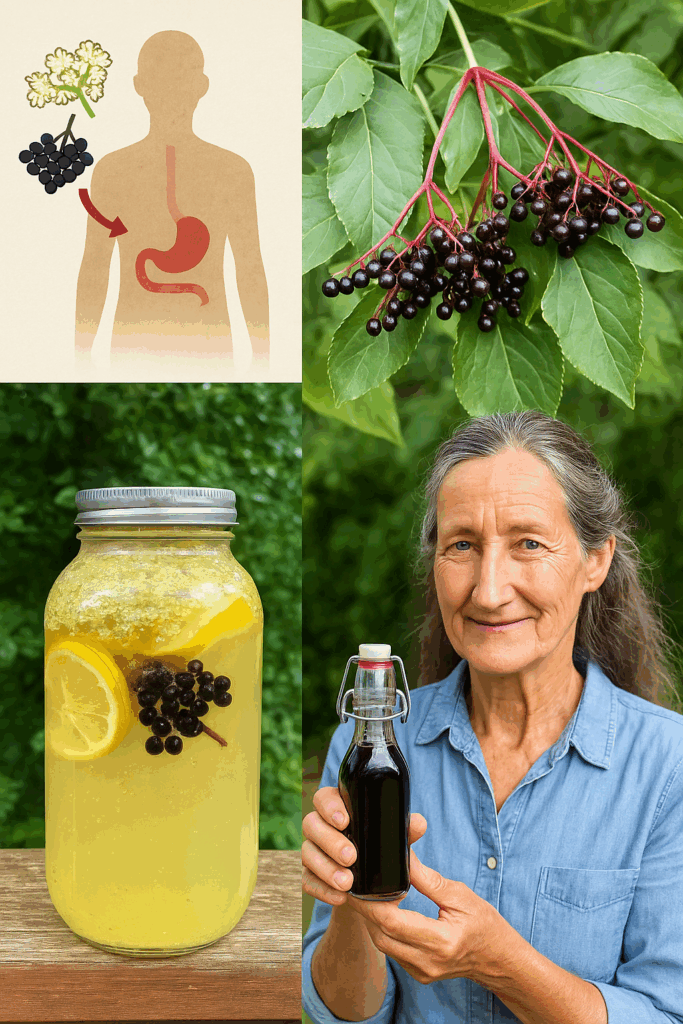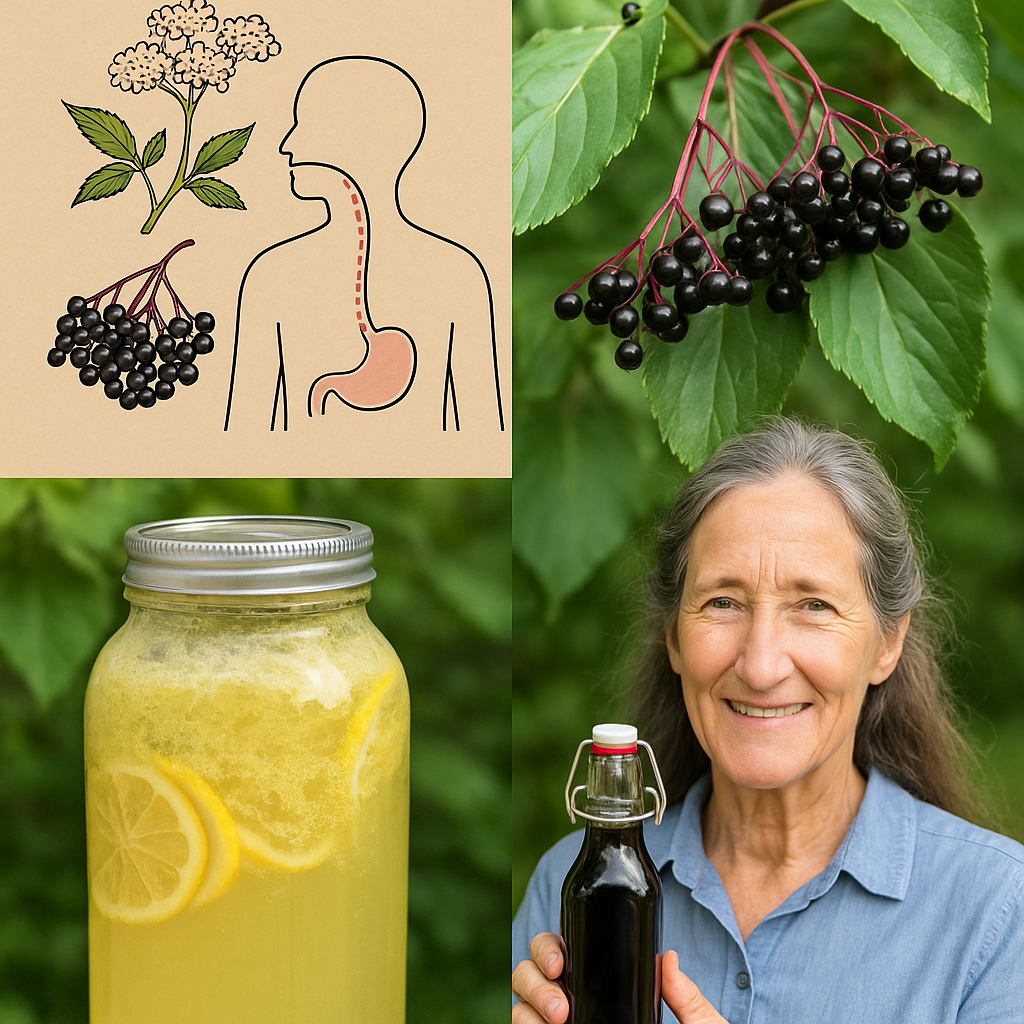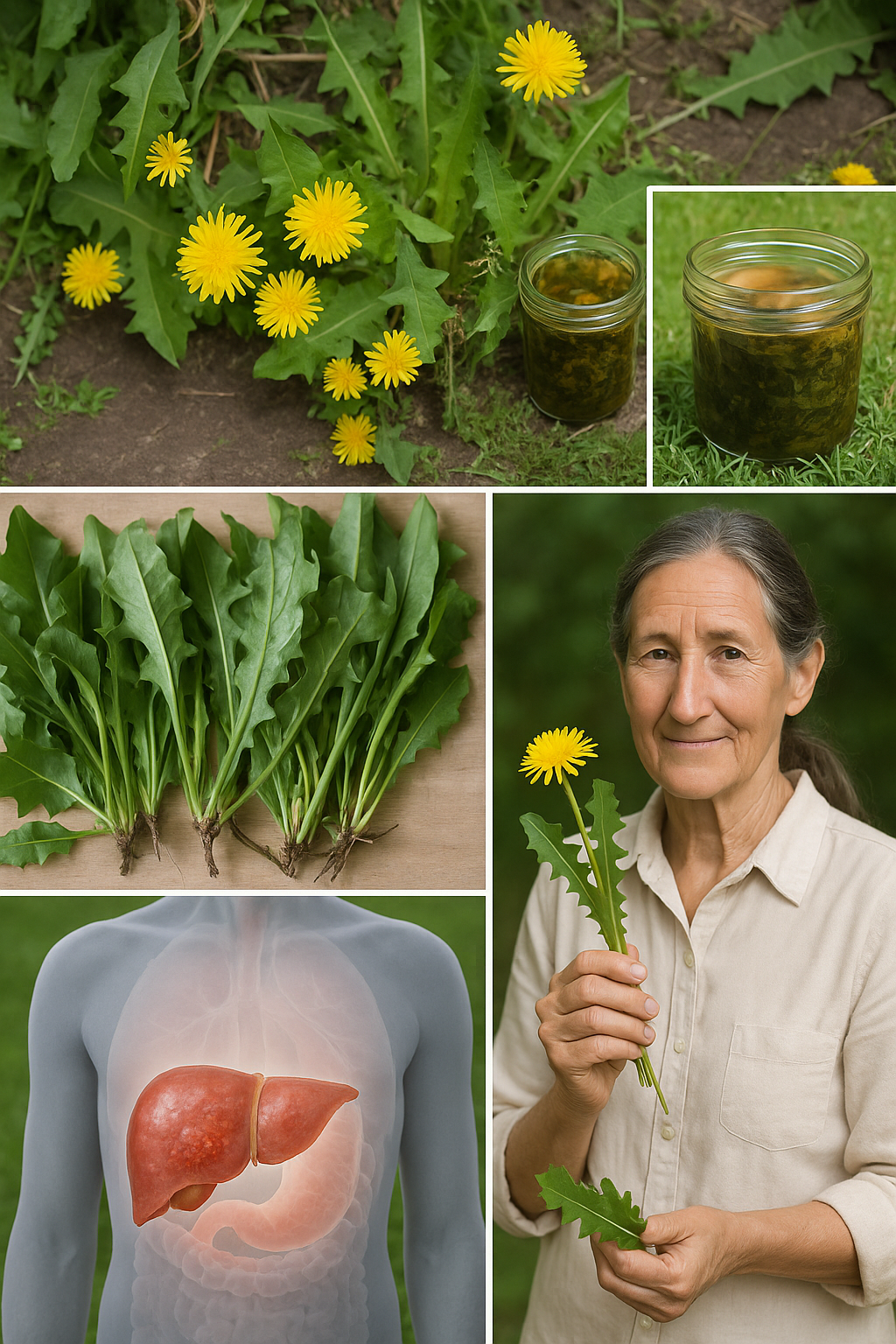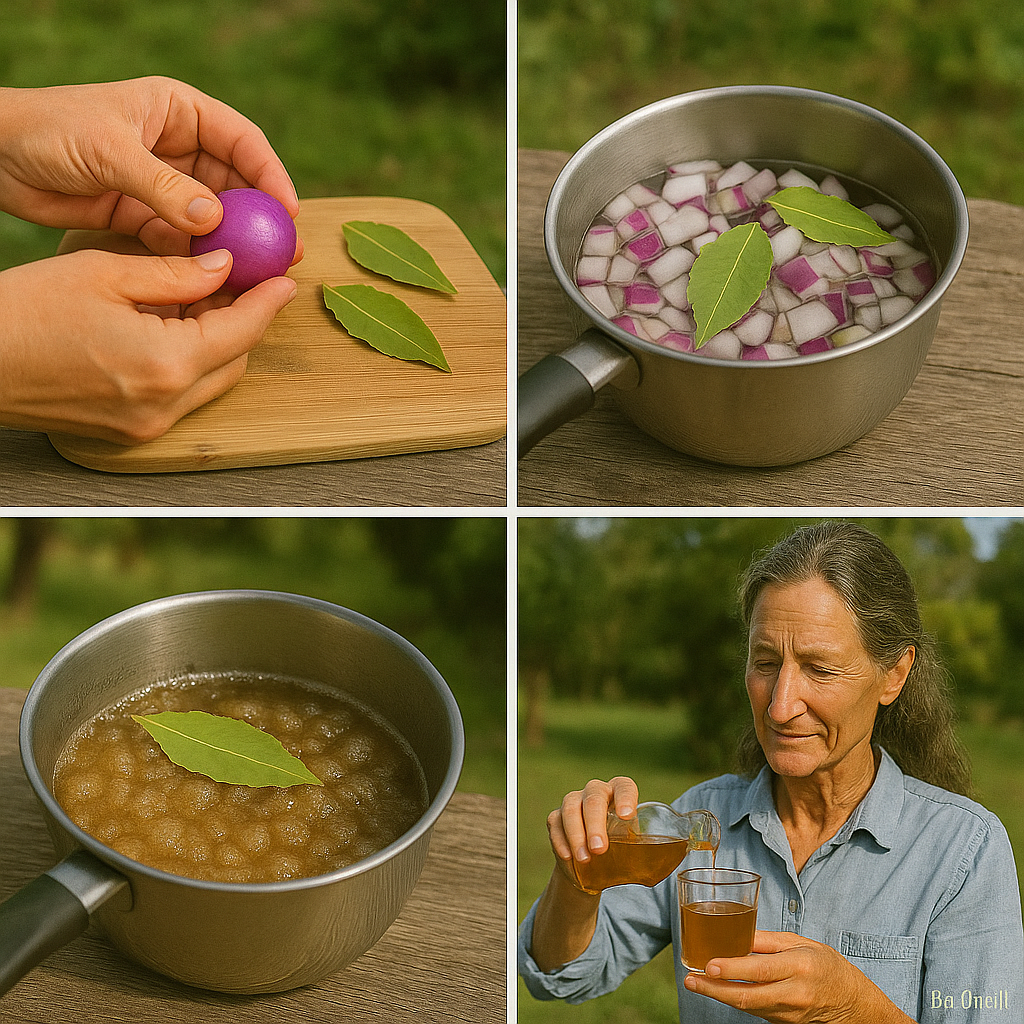Elderberries and their delicate, fragrant flowers are among nature’s most versatile remedies. Used for generations across Europe and North America, these parts of the edible elderberry plant offer a powerful array of health-supporting benefits. However, knowing which species are safe is critical — only properly prepared berries and flowers from specific species are edible.

✅ 15 Health Benefits of Elderberry Flowers and Berries
1. Immune Boosting
Elderberry contains bioflavonoids and vitamin C that help stimulate immune response.
Use: Elderberry syrup daily as a preventative during cold season.
2. Respiratory Relief
The flowers and berries help soothe congestion, coughs, and inflamed airways.
Use: Warm elderflower tea or elderberry syrup for dry or wet coughs.
3. Cold and Flu Defense
Clinical studies suggest elderberry extract can reduce symptoms and duration of flu.
Use: Elderberry tincture or homemade elderberry gummies.
4. Anti-Inflammatory Effects
Elderberry and elderflower help reduce internal and external inflammation.
Use: Regular elderflower tea or topical elderflower-infused water.
5. Rich in Antioxidants
Both flowers and cooked berries contain anthocyanins and flavonoids that protect against oxidative stress.
Use: Cooked elderberry compote, syrup, or jam.
6. Digestive Support
Elderflower tea can help ease bloating, gas, and post-meal sluggishness.
Use: Light elderflower tea sipped after meals.
7. Fever Reduction
Traditionally used to promote sweating and break fevers naturally.
Use: Elderflower infusion served warm.
8. Skin Health
Elderflower’s anti-inflammatory and astringent effects help soothe acne, rashes, and sunburn.
Use: Cooled elderflower tea applied as a gentle rinse or compress.
9. Urinary Tract Support
Mildly diuretic and antibacterial, elderflower tea may support urinary comfort.
Use: 1–2 cups of tea per day for maintenance.
10. Anti-Allergy Effects
Elderflower may help reduce histamine response, making it useful during allergy season.
Use: Drink elderflower tea consistently during spring and summer.
11. Heart Health
The antioxidants in elderberry may support blood vessel flexibility and healthy circulation.
Use: Elderberry jam or cooked puree as a nutrient-rich spread.
12. Mood Support
Elderberries may enhance mood through their antioxidant and anti-inflammatory actions.
Use: Elderberry capsules or added to smoothies during stressful periods.
13. Bone Health
Elderberries contain trace minerals like calcium and magnesium, vital for bones.
Use: Add elderberries (cooked) to smoothies or yogurt bowls.
14. Natural Detoxification
Elderflower helps stimulate the lymphatic system and eliminate toxins via mild sweating and urination.
Use: Elderflower water or tea daily for gentle cleansing.
15. Eye Health
Elderberries provide vitamin A, C, and flavonoids that may help protect eye tissue from degeneration.
Use: Elderberry-based tea or syrup 3–4 times a week.

🌿 How to Use Elderberry and Elderflower at Home
Important: Always cook elderberries — raw ones contain cyanogenic glycosides that can cause nausea or vomiting.
🫙 Elderberry Syrup
- Cook 1 cup of elderberries with 2 cups water, a cinnamon stick, and 1 tablespoon grated ginger.
- Simmer for 30–40 minutes, strain, and stir in honey once cooled.
- Use: 1 teaspoon daily for immune support.
🍵 Elderflower Tea
- Steep 1 tablespoon dried elderflowers in hot water for 5–10 minutes.
- Sweeten with honey or lemon if desired.
- Use: For allergies, fevers, digestion, or daily wellness.
🍯 Elderflower Infused Honey
- Fill a small jar with dried elderflowers and cover with raw honey.
- Let sit for 2 weeks, then strain.
- Use: In teas, on toast, or by the spoonful for sore throats.
🍮 Elderberry Gummies
- Combine elderberry syrup with gelatin and pour into molds.
- Chill until firm for a fun and kid-friendly immune booster.
🛁 Elderflower Skin Soak
- Add a handful of dried elderflowers to a muslin bag and drop into a warm bath.
- Soothes skin irritation and calms the body.
⚠️ Safety and Identification
Only use edible species:
- Safe: Sambucus nigra, Sambucus canadensis, Sambucus cerulea
- Toxic: Sambucus racemosa (Red Elder), Sambucus ebulus (Dwarf Elder)
Never consume raw berries, leaves, or stems. Always cook berries and use dried or fresh flowers carefully.
🧾 Final Thoughts
Elderberry and elderflower are gifts from nature — rich in antioxidants, soothing to the respiratory system, and helpful for everyday wellness. Whether you’re making a syrup to ward off winter bugs or sipping a calming flower tea, elder is a powerful yet gentle ally in your herbal toolkit.
📌 Disclaimer
This content is for educational purposes only. Consult a healthcare professional before using elder-based remedies if you are pregnant, breastfeeding, on medications, or managing chronic health conditions. Use only correctly identified and properly prepared elder species.


